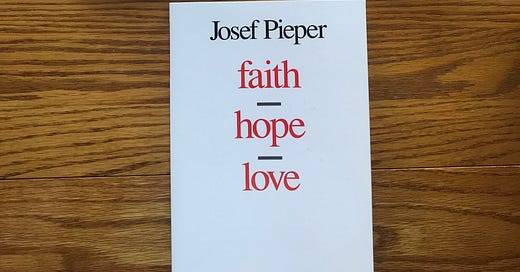I noted last week that the language of the virtue has become horrible confused—and serious consequences have followed. Moral striving seems pointless when the words become diluted with connotations of lameness. In this essay I want to turn to the first of the cardinal virtues and look a little closer.
We’ve been led to believe the virtue of prudence is b…
Keep reading with a 7-day free trial
Subscribe to The Chivalry Guild Letters to keep reading this post and get 7 days of free access to the full post archives.




